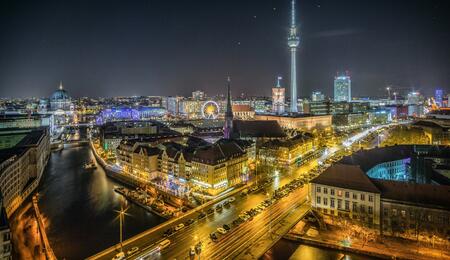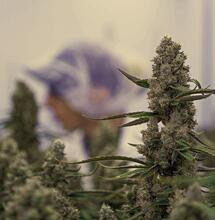German Cannabis Reform is Slow to Get Going.

Cannabis advocates are saying that the rollout of new laws allowing the recreational use of cannabis has been hindered by red tape. In the spring Germany, Europe's top economy, became the first significant EU country to permit the personal use of recreational cannabis legally.
The new law took effect in April and legalised the cultivation of up to three plants for private consumption, the possession of 50g at home and 25g in public.
A critical stage began on 1 July with the installation of registered cannabis clubs, which advocates say are essential to guaranteeing the path towards legal cannabis and replacing the black market.
Why is there a delay with reform roll-out?
The eagerly awaited launch has been stalled in a thicket of bureaucracy. What was meant to be a practical step towards evidence-based drug policy has turned into a bureaucratic nightmare according to critics.
“The biggest problem at the moment is that the situation with the authorities is unclear,” Oliver Waack-Jürgensen, High Ground, Berlin cannabis club.
Potential club founders must record member numbers, a permanent location, the extent of the growing space and their calculated annual output of cannabis before they can get the go-ahead.
If a larger amount of cannabis is produced than was expected then the excess must be destroyed. Collection of the cannabis must be in person, with an official photo ID. Giving flowers to non-members is not authorised. All procedures are open to spot checks by the authorities at any time.
Nonprofit clubs must grow the supply of cannabis for their members and also deliver youth protection, quality control, security and addiction deterrence actions.
To intercept drug tourism, club members must have lived in Germany for a minimum of six months, be signed to a club for at least three months and possess a clean criminal record for narcotic offences.
The Berlin region however has not even decided which public office should be processing the official applications. In the capital, citizens can be waiting months just to complete uncomplicated tasks like renewing their passports.
Many potential club start-ups have been unable to fill out the necessary form within the last 3 months and the dreams of being set up for a "Green Christmas" are fading fast with many now aiming to be up and running by the first quarter of 2025.
Clubs depend on fee-paying members to operate but in contradiction are prohibited from advertising, depriving them of an essential capital source that is needed to rent premises and the land for cultivation. Any consumption on club premises is also forbidden.
“We are subject to more restrictions than any alcohol company, the government has also made it difficult for us to stand up to the hidden [narcotics] market.” -Marten Knopke of the Cannabis Social Club Leipzig,
Tourists who have recently visited for Euro 2024 had been disillusioned to see that Germany had not turned into a haven for weed. There are no legal shops up and running yet meaning that locals and tourists alike would still have to turn to the black market and an unsafe supply chain.
It would appear however that advocates are prepared to launch legal battles and lobby for more “realistic” policies approved in the courts and parliament.
More From Soft Secrets:
German Reform Moves Forward as Planned
What Does German Reform Mean for Canna Culture
Germany Legalises Recreational Cannabis








